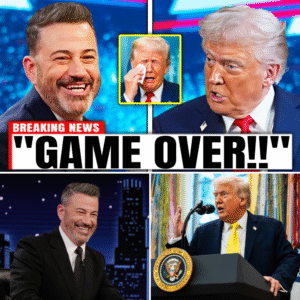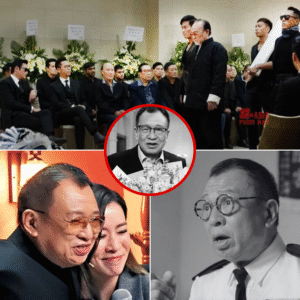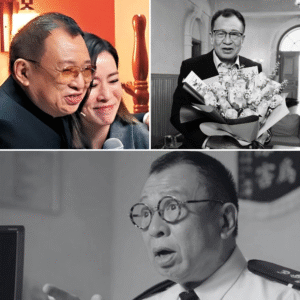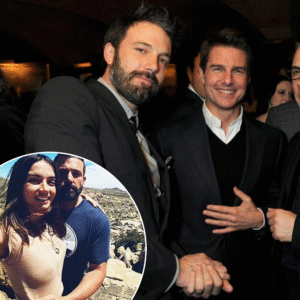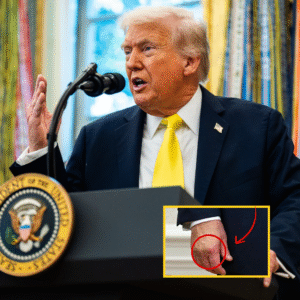Tucker Carlson Exposes the ‘Terrifying Truth’ Behind Charlie Kirk’s Death
In a fiery monologue, Tucker Carlson rejected the official narrative surrounding Charlie Kirk’s death, demanding a full, transparent investigation and exposing the intense political and financial pressures Kirk faced just days before the incident. Carlson warned that the rush to label the event the work of a lone gunman is a betrayal of the public trust and connected the incident to a broader, dangerous trend of political confrontation.
The Hunger for Power: Not Random, But Managed
Carlson argued that attacks on prominent conservative figures—including the attempt on Lee Zeldin and the shooting of Steve Scalise—were “not anomalies” and “not random.” He claimed they are connected to a larger political movement committed to “total control,” where anyone who stands in the way is deemed a “valid target.”
He stressed that while not every political opponent desires violence, there is an “unmistakably a hunger for violence among some Democratic leaders,” fueling an appetite for confrontation within the establishment.
This relentless focus on power, Carlson argued, leads to a toxic political culture that values numbers above all else:
“Our tribe will be in charge. That’s the imperative. And they are focused on that relentlessly at every single level.”
Demanding Transparency: Why the Lone Gunman Story Is Insufficient
Carlson dismissed the idea that the case should be rushed to a close, calling the declaration of a “lone gunman with no accomplices” an unacceptable betrayal of transparency.
He acknowledged that criminal investigations often have “anomalies” and contradictory witness accounts. However, he insisted that the FBI and Utah authorities must conduct a “truly exhaustive investigation” into the case of the accused, Tyler Robinson. If they close the case without one, he warned, it would “risk further fracturing the United States.”
Carlson highlighted several critical, unanswered questions:
- Missing Footage: “There’s no videotape of this guy getting on the roof. There’s no videotape of him bringing the [rifle] on the roof. It’s not clear he brought the [rifle] off the roof.”
- The Decoy: Who is the man identified as George Zen who was allegedly yelling and acting erratically at the scene? “Why? What is that? Is that connected? Like tell me a story that makes sense.”
- Radicalization: Most importantly, how did a “pretty normal kid” become a radicalized stranger? “Walk me through that. Tell me exactly how that happened. We’re owed that.”
Carlson expressed deep distrust in the FBI, citing past incidents where the institution has been “caught acting in bad faith.” He asserted that every American, regardless of their political views, should demand the full truth: “Transparency isn’t partisan, it’s patriotic.”
The Economic and Foreign Policy Battle Charlie Kirk Was Fighting
Carlson revealed that Kirk was under enormous pressure from powerful figures just before his death, suggesting the final days of his life were consumed by financial threats and political attacks.
1. The Pro-Israel/Tucker Conflict
- Financial Duress: Kirk was being tormented by a “small, very intense group” of donors who objected to his decision to stand by Tucker Carlson and his growing critiques of U.S. foreign policy.
- $2 Million Loss: Kirk lost a $2 million donation because he publicly pledged to have Carlson speak at the next Turning Point conference.
- Netanyahu’s Exploitation: Carlson condemned Benjamin Netanyahu for attempting to “hijack Charlie’s memory and use it for his own political ends,” calling the Israeli leader’s claims that Kirk was anti-Semitic “completely untrue.” Carlson stated that Kirk was frustrated by what he saw as Netanyahu “using the United States to prosecute his [political agenda]” and felt it was “shameful and embarrassing and bad for the United States.”
- Anti-Semitism Smear: Carlson was outraged that the American Jewish Committee publicly labeled Kirk an “anti-Semite” and “dangerous,” a claim he called “utterly baseless and deeply dishonest.”
2. Changing Economic Views
Carlson revealed that Kirk’s views on domestic issues were “changing fast and hardening,” particularly on economics and the distribution of wealth.
Kirk observed that young people were “not thriving at all” and that the chances of them owning homes or starting families were severely diminished by debt and economic stagnation. This led him to question the fairness of a society that awards wealth based on being the “most aggressive, the best connected,” rather than on creativity, decency, and hard work.
The Big Picture: Light Versus Dark
Ultimately, Carlson concluded that while a precise accounting of the facts is necessary, the greater truth lies in the spiritual. He views the event as an attempt by the “forces of darkness” to “extinguish the light” that Kirk represented.
He honored Kirk’s legacy of free speech and sincere Christianity, noting that Kirk spent his life traveling to college campuses to debate those who disagreed with him, patiently and honestly answering their questions.
“For forces of darkness tried to extinguish the light. And not only did they fail, their effort was counterproductive.”
Carlson believes Kirk’s life and death serve as a potent reminder that free speech is a virtue and the foundation of the country—and that the light of truth continues to glow brighter despite the efforts to extinguish it.
